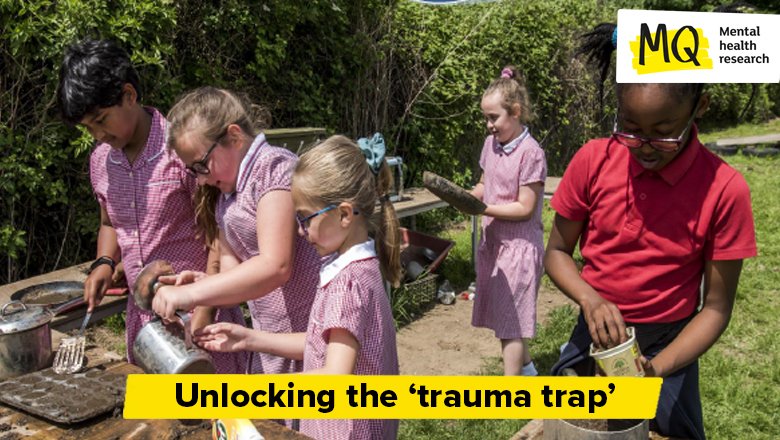MQ joins calls for a public health strategy on trauma. |

MQ has contributed to an All-party parliamentary Group report that is calling on the UK government to ‘unlock the trauma trap’ of Adverse Childhood experiences (ACEs) and free the nation’s children with a population-wide public health strategy.
What are Adverse Childhood Experiences?
Adverse Childhood Experiences, or ACEs, are highly stressful and potentially traumatic events or situations that occur in childhood. There is a strong correlation between ACEs and a range of significant negative outcomes that can impact people for their entire lives.
Examples may include, but are not limited to:
- Experiencing or witnessing domestic abuse, violence or neglect;
- Experiencing sexual abuse;
- Experiencing food or housing insecurity’
- Bullying or discrimination;
- Psychological or emotional abuse;
- Living with someone who abuses alcohol or drugs in the home.
Contributor to the report, Keith Godfrey, Professor of Epidemiology and Human Development at the University of Southampton and the NIHR Southampton Biomedical Research Centre said:
“Adverse child experiences have lasting impacts that impair a child’s ability to fulfil their potential. At a population level, their consequences place a serious burden on the healthcare system and limit economic productivity. The cost of inaction is substantial. We can, and must, do better in preventing adverse child experiences and in mitigating the life course consequences.”
There is a graded dose-response relationship between ACEs in childhood and unfavourable life course outcomes, but it is possible to both prevent their occurrence and mitigate their impact. However, although awareness is growing, ACEs have yet to be approached as a significant public health issue in the UK; assessment of their combined impact with other adverse experiences and circumstances is at best rudimentary and at population level, there is no co-ordinated strategy that is holistic, fully-inclusive in design and practice, and preventive rather than reactive.
The report, written by the APPG for a Fit and Healthy Childhood, lays out a roadmap for the government to reduce ACEs and their impact. This roadmap calls for:
A National ACEs strategy which takes a public health approach to addressing some of the major contributing factors to ACEs such as child poverty.
It also calls for enhanced data collection and research to help identify at-risk groups and take an evidence-based approach.
Strengthening early intervention and prevention through family support services and healthcare professionals, especially during the first 1000 days of a child’s life. You can read more about Early Intervention measures here.
Integrating ACEs prevention into education policy so that schools, which are pivotal in intervention and prevention, can provide integrated social and emotional learning into the curriculum and provide mental health services.
Cross-sector collaboration between national and local government, healthcare providers, educators and other non-profit and community organisations to address the multi-faceted nature of ACEs in a holistic way.
Finally, a public awareness campaign, as ACEs and their effects are often shrouded in stigma. Government action is needed to lead an evidence-based campaign to reduce stigmas and encourage people to access support systems.
Lead Author Helen Clark added:
‘This is the approach that unites economic and social justice because the UK works best when it can harness the abilities and talents of all of its citizens. It’s time for Government to unlock the trauma trap and free all children to build their future and ours too.’
Source link
#joins #calls #public #health #strategy #trauma

